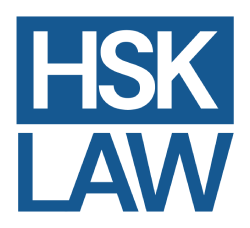
I was retained by a client, TK, to appeal a decision of the Canada Employment Insurance Commission (the “CEIC”). At first instance, the CEIC determined that TK’s award of general damages were actually earnings and therefore should be applied towards repaying her employment insurance benefits, which she received once she was terminated. If an employee receives employment insurance after being terminated and then receives termination pay, the termination pay received will be applied towards paying the government back for employment insurance sums receive.
I was retained by a client, TK, to appeal a decision of the Canada Employment Insurance Commission (the “CEIC”). At first instance, the CEIC determined that TK’s award of general damages she received in settlement were actually earnings and therefore should be applied towards repaying her employment insurance benefits, which she received once she was terminated. If an employee receives employment insurance after being terminated and then receives termination pay, the termination pay received will be applied towards paying the government back for employment insurance sums receive.
TK was a probationary employee who informed her employer that she was pregnant and was terminated shortly thereafter. TK alleged that the employer terminated her contrary to the Ontario Human Rights Code (the “Code”).
She eventually negotiated a settlement with her employer, who agreed to pay her general damages as compensation for the employer breaching TK’s rights under the Code. General damages are usually awarded in human rights matters to financially compensate one for injury to dignity, feelings, and self-respect as a result of the discrimination. Usually, general damages are not considered earnings and as such, should not be applied towards repayment of employment insurance received by a terminated employee. The CEIC ruled that the general damages she received were actually earnings and as such, allocated this money towards employment insurance repayment. TK requested a reconsideration of the CEIC’s decision, which was denied. I was then retained to file an Appeal before the Social Security Tribunal of Canada.
Decision:
The Appeal was allowed. I successfully argued that the amounts TK received from her employer were not earnings but general damages flowing from the employer breaching the Code. As a result, the Tribunal ordered the CEIC to repay TK monies owing to her.
First Instance Decision by the CEIC:
The CEIC determined that the amounts TK received from her employer were not general damages but earnings due to the fact that the full and final agreement was too vague and did not clearly state that the monies flowed from a human rights violation.
The CEIC stated that TK could have the decision changed by proving that either a human rights application was submitted to the Human Rights Tribunal of Ontario (“HRTO”) or by receiving a letter from the employer, which clearly outlines that the settlement monies were obtain as a result of human rights violations.
The Appeal:
I argued that it was standard practice for an employer to specifically state that settlement monies do not constitute an admission of liability of wrongdoing and that it is unlikely an employer would admit to violating its employees rights in a full and final release. I further argued that the CEIC suggestions would discourage early resolutions being sought outside of the HRTO.
The CEIC’s reasoning was in sharp contrast with previous rulings of the Social Security Tribunal. I cited D.P. v CEIC, 2016 SSTADEI 559 , in which the Tribunal urged the CEIC to move away from the restrictive interpretation of the minutes of settlement and to take into account other facts of the case and other documentary evidence available to them. I argued that TK need only prove, on a balance of probabilities, that the amounts she received were paid out for other reasons other than the loss of revenue arising from employment B.P. v CEIC, 2018 SST 538.
1.TK was a probationary employee who was clearly terminated due to her pregnancy;
2. As a probationary employee, TK received $15,500.00 in damages. This was far beyond any statutory or common law entitlements owing to TK and therefore, had to constitute compensation for something other than the loss of employment based on the decision in D.P; and
3. Prior to final settlement monies being issues, TK received all unpaid wages and other outstanding payments owing to her in the amount of $1,706.00, which further evidenced that TK’s settlement of $15,500.00 was separate from amounts she received for any losses of revenue arising from employment.
Given my arguments above, the Social Security Tribunal ruled that the amounts received by TK were not earnings but general damages and as such, should not be allocated towards employment insurance repayment.
You can download the full decision here.
Contact Us
If you require assistance appealing a decision of the Canadian Employment Insurance Commission or Social Security Tribunal of Canada, call us now for a free consultation at 416-238-7105 or email us at info@hsklaw.ca.
Disclaimer: This article does not serve as or should be construed as legal advice. It is only intended to provide general information. No portion or use of this article establishes a lawyer-client relationship with our firm.

Book your FREE consultation
Submit the form below or call (416) 238-7105 to find out if you have a claim!
